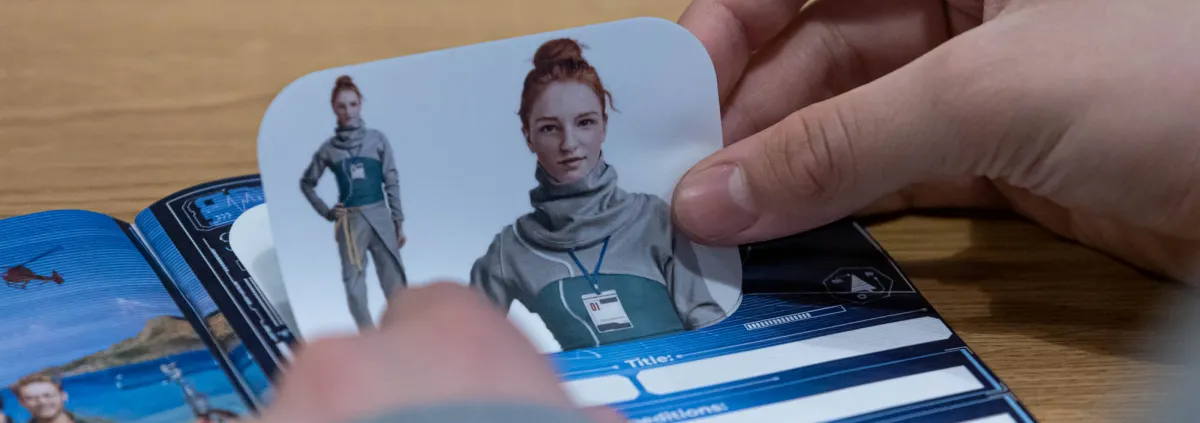Maker's Red Box is focused on combining STEAM education with storytelling to create engaging learning experiences and develop future-proof soft skills. Since the United Nations Education, Science and Culture Organisation has long voiced that environmental studies should be standard teaching in all countries by 2025, we asked ourselves how we can help schools and teachers work climate change studies into their curricula. This is how our Global Warning course materials came to be.
Global Warning: bringing kids closer to climate action one challenge at a time
In developing Global Warning, we worked with climate scientists as well as talked to people who live with the consequences of the climate crisis on a daily basis. Our goal was to come up with course materials that put children at the heart of climate action through real-life scenarios. Their mission? To find new ways of sustainable living everyone can benefit from. And the teacher’s? To take the students on a trip of a lifetime aboard a research vessel that seems straight from a sci-fi movie.
Once the children have got their bearings, they kick things off by measuring CO2 levels with microcontrollers in Chennai, India, where they study water management, greenhouse emissions and sustainable transportation. The next stop is the Pacific Ocean’s Ring of Fire. Here the students create artificial reefs and study sustainable tourism in the Coral Triangle, before moving on to the Northwest Passage to observe permafrost. They also make a stop at the mouth of the Orinoco River to plant mangroves, only to round off their adventure by designing weatherproof school buildings in Lagos.
During their mission, the crew members take on various roles as they research, assess, design and build, discovering smart solutions and winning strategies for adapting to life in a changing climate. This has a dual purpose. One, to allow them to experience the impact our actions have on the environment and find new and innovative ways to drive change. Second, to develop a bevy of soft and hard skills that no 21st-century global citizen should be without, including critical thinking, communicating with empathy and impact, researching and validating information, 3D design and printing, data visualization, crisis management and teamwork.
Making a difference: global competences for tackling global issues
Fewer than 40% of teachers are confident in teaching about the severity of climate change, even though 95% think it’s imperative to bring the issue into the classroom. That’s according to a 2021 global survey of 58,000 teachers, conducted by UNESCO and Education International, which also highlighted that only one-fifth of educators felt well-equipped to teach skills that support students’ understanding of sustainable development or global citizenship themes, and even fewer to do so in an interdisciplinary manner.
Global Warning doesn’t require teachers, or kids for that matter, to have special interests or backgrounds to make the most out of the classes. Using storytelling, gamification and a project-based approach, the students are encouraged to put their skills to the test, build new ones and leverage those of their peers. They have 16 two-hour sessions to complete their mission, using what they learned about biodiversity, micro:bit programming or crisis management without ever drawing lines between disciplines.
Along with our other course materials, Green Engineers, City of the Future and Superheroes – Digital Storytelling, Global Warning has been developed in accordance with the global competence framework that the OECD adopted in 2018 to measure students’ ability to understand both local and intercultural issues, appreciate different perspectives and take responsible action toward sustainability and collective well-being.
The birth of the framework signalled a tectonic shift in how policymakers think about the world we live in now as well as how education can help us thrive in it. Defining global competence as a combination of knowledge, skills, attitudes and values successfully applied to global issues or intercultural situations, it spelled out the need to teach kids how to function in an economy so interconnected that what they do in one corner of the globe can have a major impact on people living in another.
Ádám Horváth, head of pedagogy at Maker’s Red Box, explained: “Children must learn that creating value is no longer a synonym for making a profit. It’s about making gains while being mindful of what we’re taking away in the process.” He added: “They must understand global dynamics and local responses, and that challenges of collaborating with someone a continent away might go beyond a difference in time zones.”


By clicking show content, you agree to load the embedded content from "YouTube" and therefore its privacy policy.